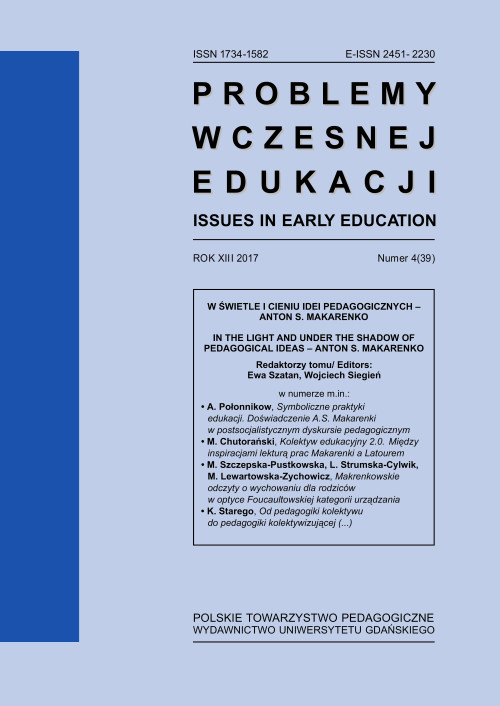Sytuacja prawna dzieci w Polsce po 1945 r. Wybrane aspekty z A.S. Makarenką w tle
DOI:
https://doi.org/10.26881/pwe.2017.39.06Słowa kluczowe:
prawo rodzinne, dobro dziecka, władza rodzicielska, wychowanie, karanieAbstrakt
The time after 1945 is one of the most important moments in the process of developing children’s rights, because for the first time in the history of Polish legislation the established law had equalized the legal position of all children, abolishing all differences between those who were born in and outside of marriage. The analysis carried out in the text shows that the law established at that time was not only progressive in relation to the past, but it also kept up to date, about which, after the liberal breakthrough of 1989, we do not want to remember. The developed principles of exercising parental authority, with parents’ rights and duties equated, caused the concept of the child welfare to play a leading role in the interpretation of family law. The child welfare has therefore become the basic value that requires priority treatment. It is also important that after 1945 the process of eliminating children’s corporal punishment from the pre-school and school environment, and now also from the family circle, was initiated.

 Uniwersyteckie Czasopisma Naukowe
Uniwersyteckie Czasopisma Naukowe





